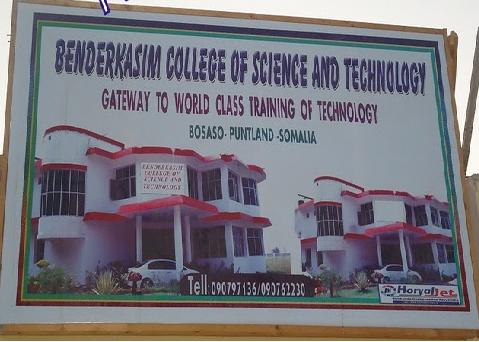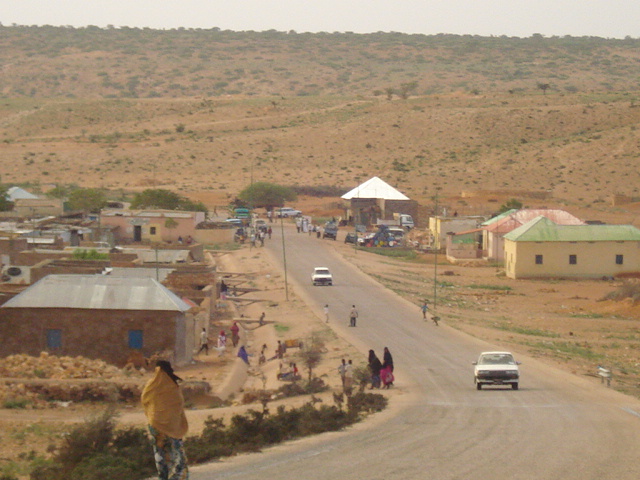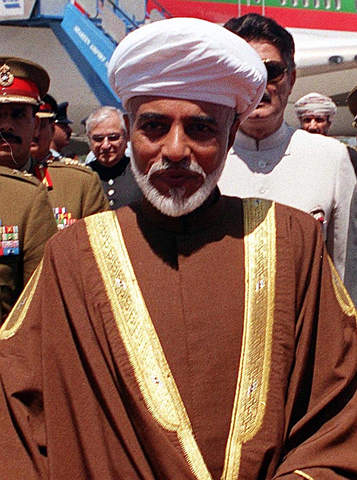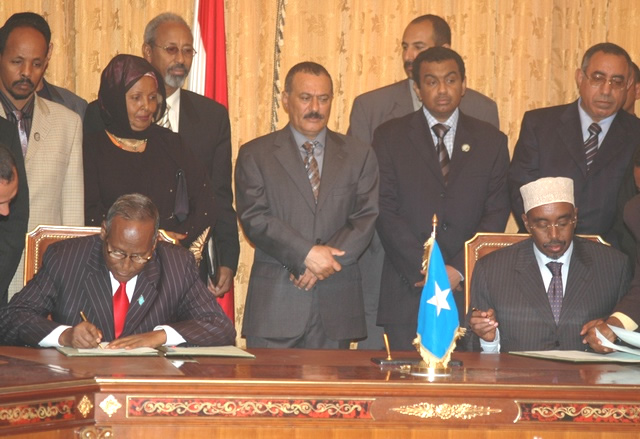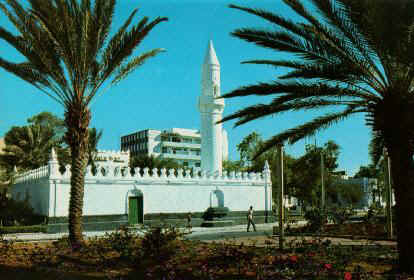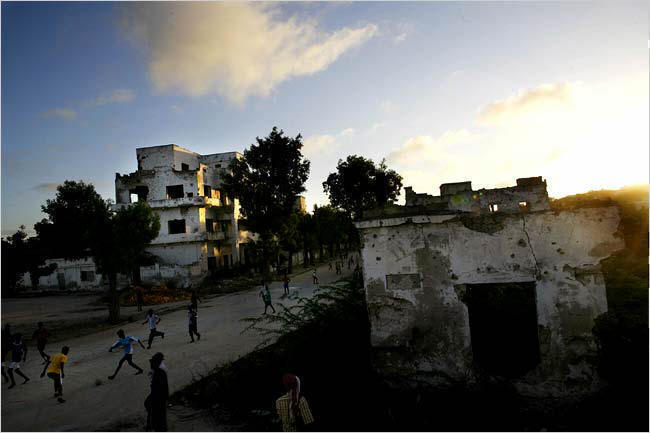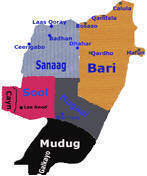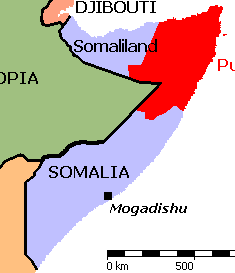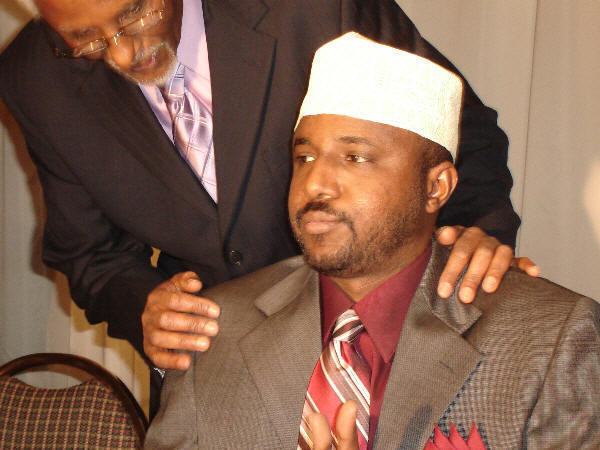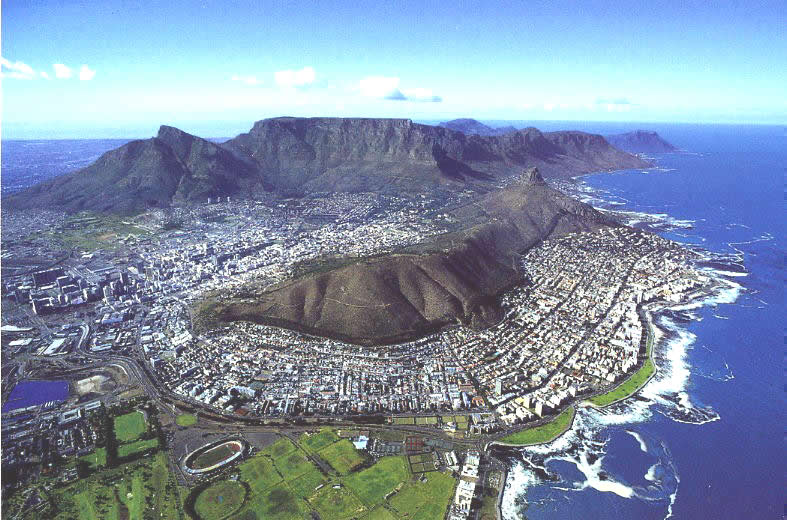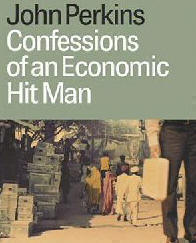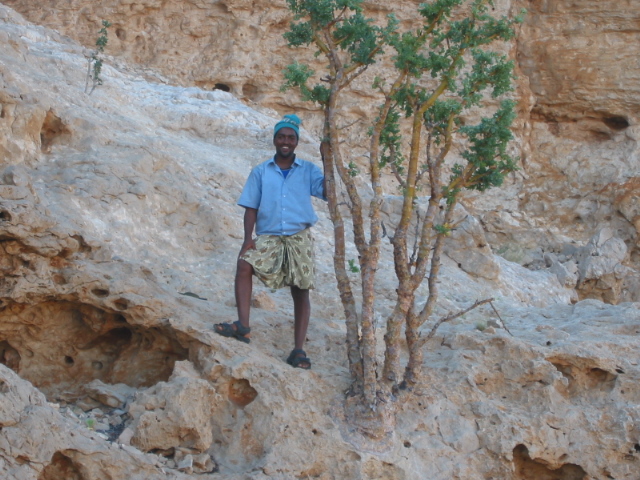
Zooming into the Past
What If
Biyokulule Online
August 21, 2010
Toronto: The Somali problem has been around for two decades now and it is apparent that no quick fix will put to those who commit war crimes or any other crimes or human rights violations against innocent people.
In early 1990s, as you will see below, groups of immigrant Canadians were trying to bring their relatives to
Meanwhile, it was reported that those who sought to reunite their loved ones on humanitarian grounds include Hawo Abdi Samater whose husband, Abdullahi Yusuf, was �an ex-army officer who headed the Democratic Front for the Salvation of Somalia (DFSS), fighting the military government of then-president Siad Barre from an Ethiopian base from 1978 to 1985�.
Ottawa`s initial response to Samatar`s appeal was apparently suspicion-filled statements about the ex-rebel leader`s life story and therefore put forward such statements as: "We`re dealing with a guy who was detained. We want to determine why and what he had done to result in that." As the former leader of a rebellion in
In any case, thanks the time consuming morass for the Canadian immigration process, sheltering Abdullahi Yusuf was not possible. The ex-rebel leader would have tarnished the Canadian image.
The apprehension of the immigration officials rose from the realization that the ex-rebel leader should answer past human rights abuses instead of being given refuge here.
Pair in danger in
By Barbara Aggerholm
Kitchener-Waterloo Record
May 31, 1991
But now, the men have phoned from
"As much as I was happy, I am worried about them," said Yasmin Hassan, whose father, Abdulqadir Hassan, was released along with Hawo Abdi Samatar`s husband, Abdullahi Yusuf Ahmed.
The families are appealing to the federal government to help the men.
Ahmed is an ex-army officer who headed the Democratic Front for the Salvation of Somalia (DFSS), fighting the military government of then-president Siad Barre from an Ethiopian base from 1978 to 1985.
He and his followers, including Abdulqadir Hassan, were imprisoned after
Abdullahi Yusuf Ahmed had been detained in
Last year, Waterloo MP Walter McLean raised Ahmed`s case with Ethiopian leaders. And thousands of high school students in Waterloo Region wrote to the Ethiopian government to appeal for Ahmed`s freedom.
But his wife and four children didn`t hear from him until this week.
And now they, along with Yasmin Hassan and her brothers and sisters, are anxious to bring the men safely to
They are asking McLean and Kitchener MP John Reimer to help.
"The country is not safe," she said. "We`re asking the Canadian government to do something."
Ahmed Haji-Jama, a
Now that he`s out of detention, they should be able to help, he said.
Hassan said she spoke to her father and Ahmed after they telephoned from a hotel in
Her father said the rebels just opened the prison doors and let them go. They are in danger from ethnic clashes in the capital, Haji-Jama said.
McLean said there`s nothing
"There`s no lack of sympathy," he said. "The problem is to get some access." He has received many calls for help through his riding office and in
Ethiopia`s international airport is not open, the Canadian embassy is closed and Canadians there are trying to keep safe, he said.
There`s hope the situation will very soon open up so a request like this one can be pursued,
United Nations agencies, relief organizations, churches and the International Red Cross are all present in
McLean said he can`t say at this time how
Reimer said he will work on the families` concerns with the External Affairs Department.
He said he wrote a letter previously to then-external affairs minister Joe Clark and then-immigration minister Barbara McDougall asking them to intervene on Ahmed`s behalf.
� Copyright 1991
Somalian eager to join K-W family
By Barbara Aggerholm
Kitchener-Waterloo Record
June 14, 1991
"The spouse is a landed immigrant so it`s a Number 1 priority."
Abdullahi Yusuf Ahmed had been detained in an Ethiopian prison for six years before being freed recently by rebels who captured the Ethiopian capital of
In a telephone interview from
"For almost six years I was in complete isolation in my room," said Ahmed, who has asthma.
"I got no sunshine, fresh air. I couldn`t get any time outside the room. I was sick and they refused to give me medical assistance."
He said he and Abdulqadir Hassan, who also has relatives in
"I will be so happy to join my family, to see again my wife and my children."
Dunnington said Ahmed`s case is not straightforward.
"Because of the volatile political situation in
"We`re dealing with a guy who was detained. We want to determine why and what he had done to result in that." As the former leader of a rebellion in
Ahmed is an ex-army officer who headed the Democratic Front for the Salvation of Somalia (DFSS), fighting the military government of then-president Siad Barre from an Ethiopian base from 1978 to 1985.
He and his followers - including Hassan - were imprisoned after
Ahmed had been detained in army headquarters in
His wife, Hawa Abdi Samatar, and four children live in
"He didn`t know anything about schools, how tall we were . . . " said his daughter, Maryan Yussuf, 22. "He`s like a person who woke up after six years."
They are anxious to see him safe in
"The day I listen to his voice, I`m not OK," Samatar said. "I`m so afraid of that place."
Dunnington said
The Canadian embassy in
"They`re looking at developing information at hand to see whether they want to take six months or short-circuit it." If appropriate, a minister`s permit could exempt him from medical and background checks, Dunnington said.
� Copyright 1991
Somalians to get immigration hearings
Kitchener-Waterloo Record
June 26, 1991
Immigration spokesman Rick La Rush said Thursday that over the "next couple of months," immigration officials in
They will investigate the men`s backgrounds - such as the reasons for their detention - as well as do medical examinations and other checks, La Rush said.
Ahmed is an ex-army officer who headed the Democratic Front for the Salvation of Somalia (DFSS), fighting the military government of then-president Siad Barre from an Ethiopian base from 1978 to 1985.
He and his followers - including Hassan - were imprisoned after
Ahmed was detained without being charged with any offence, said Amnesty International, the world-wide human rights organization that issued an urgent appeal last year on his behalf.
Immigration officials in
Ahmed`s wife, Hawa Abdi Samatar, has been approved to sponsor her husband in
� Copyright 1991
Canadian Paper Says Aydid Enquiring About Political Asylum
BBC Monitoring Service:
October 11, 1993
The `
Source: Radio
� 1993 The British Broadcasting Corporation. All Rights Reserved.
Puntland administration accused of bad governance
BBC Monitoring
February 28, 2001
Boosaaso [northeastern
The statement, signed by 78 persons of high profile, accused the Puntland administration for scores of violations. They accused the administration of entering [into] secret marine agreements, human rights violations, the establishment of [an] underground front [presumably of southern faction leaders and the Puntland administration who are allies of
The statement strongly condemned the Rahanwein Resistance Army administration for its claims of the possession of
The statement also made clear that a conference could not take place in Garoowe [capital city of
Source: HornAfrik Online text web site,
� 2001 The British Broadcasting Corporation. All Rights Reserved.
Puntland leader reportedly "hiding" in
BBC Monitoring
September 26, 2002
It has now become an open secret that Puntland`s dictator, Col Abdullahi Yusuf, is hiding in
The sultan, Col Yusuf`s vocal critic, was brutally shot point blank by the dictator`s bodyguards on 17 August 2002, at Kalabeyr village in
Col Yusuf has caused untold hardships, killings and atrocities among civilian populations in Boosaaso, Qardho, Garoowe and Gaalkacyo cities of
The fact that the colonel came to
Col Yusuf has a litany of human rights abuses that stretch back to 25 years when he led the Ethiopia-based armed insurrection against the Somali government.
Meanwhile the children of another victim, their father Abdirahman Aydid, killed point blank by Yusuf`s body guard in 1985, and the children of Sultan Hurre [phonetic] are both in
We, Somali Peace Rally [SPR - presumably a UK-based pressure group], strongly urge the British authorities to prosecute Col Yusuf for his dismal record on human rights...
Excerpt from report by Somali anti-Abdullahi Yusuf Puntland web site Realpuntlander.com on 26 September
� 2002 The British Broadcasting Corporation. All Rights Reserved.
War and Political Assassinations Continue in
January 02, 2003
Galkaio, Jan 01, 2003 (Somali Peace Rally/All Africa Global Media) - Somali Peace Rally (SPR) condemns the criminal and senseless murder and the brutal killing of the intelligentsia of Puntland and indiscriminate massacre to the unarmed civilian people of Bari Region by Col. Abdullahi Yusuf, a man who thinks that he prospers in having blood in his hands.
We all know the broad-day-light assassination of Col. Farah Dheere, a prominent businessman in Garoowe, a key figure opposed to Col. Yusuf. Mr. Farah was killed by the body guards of Puntland`s brutal dictator. On 17th August 2002, another high profile assassination took place in Kalabayr village (between Garoowe and Galkacyo) the point-blank killing of Suldan Hurre, a very important person in Puntland who opposed publicly the Colonel`s misrule of Puntland regions. The prominent Sultan was brutally shot by the special guards of Col. Abdullahi Yusuf
To perpetuate the circle of bloodshed, on December 25th 2002 another wealthy young entrepreneur, Abdirisak Mohamed Jama aka Boobe was brutally killed by a hit man sent by the Colonel. The Colonel`s militia helped the assassin get away. Mr. Boobe was lately accused of collaborating with the Abdullahi`s dissidents in Dhudo base under the leadership of General Adde Muuse.
The violent effort by Col. Yusuf to intimidate civilian population have exacerbated tribal and other tensions within the country.
We strongly urge Human Rights organisations to investigate the mass barbaric killings of Col. Yusuf. We also call the international community to take Col. Yusuf to court and he faces the accusation made against him. It is reported that Col. Yusuf eluded court proceedings in
In another unfortunately event, on December 30th and 31st 2002, the Col. Yusuf launched an attack on his political adversaries in Dhudo
We remind the Somali people that the barrel of the gun, Abdullahi`s trademark is not leading
� 2003 AllAfrica, All Rights Reserved
Govt, Insurgents `Committing War Crimes`
by Kevin J. Kelley
August 21, 2007
Nairobi, Aug 21, 2007 (East African/All Africa Global Media) -- All parties in the increasingly vicious conflict in Somalia are guilty of atrocities that warrant prosecution as war crimes, Human Rights Watch charges in a report published last week.
Powerful outside forces such as the
"Numerous violations of international humanitarian law have been met with a shameful silence and inaction on the part of key foreign governments and international institutions," the rights group says.
The report urges the
The report also notes that the
Hundreds of non-combatants have been killed and some 400,000 Somalis have been uprooted in the past few months, Human Rights Watch reports. Decrying this "catastrophic toll on civilians," the group warns that the conflict is being largely ignored despite its "regional and international significance."
"The warring parties have all shown criminal disregard for the well-being of the civilian population of
Interviews conducted by the group`s researchers in
Human Rights Watch finds that the insurgency routinely bases its fighters in densely populated neighbourhoods of
It further notes that, in March, the insurgents mutilated the bodies of captured combatants whom they had executed.
Ethiopian troops have meanwhile carried out "widespread, indiscriminate bombardment" of areas where the insurgents are based.
"The deliberate nature of these bombardments, evidence of criminal intent, strongly suggests the commission of war crimes," the report says.
Human Rights Watch says it has documented cases of Ethiopian forces deliberately shooting at and subsequently executing civilians.
The occupiers are also said to have attacked hospitals in the Somali capital.
"They committed pillage and looting of civilian property, including of medical equipment from hospitals," charges the 113-page report entitled "Shell-Shocked: Civilians Under Siege in
"The insurgency placed civilians at grave risk by deploying among them," Roth comments. "But that is no justification for Ethiopia`s calculated shelling and rocketing of whole neighbourhoods."
The TFG is accused of carrying out its own attacks on civilian areas.
The report includes a transcript of a radio interview with Somali President Abdullahi Yusuf who was asked whether he would order bombardment of an area where insurgents were hiding, even if civilians lived there.
"Yes, we will bombard it!" Mr Yusuf replied.
TFG forces also mistreat Somalis in their custody, loot property, and prevent aid shipments from reaching displaced persons, the report says.
Allegations against
The New York Times meanwhile reported that Abdi Haji Goobdoon, a spokesman for the Somali transitional government, called the report "very, very complicated." He said the TFG acted in "self-defence" in the course of fighting early this year. "Our government had just arrived in the capital, and we were coming under repeated attack. We had to stop it."
The United Nations must do more to help restore the rule of law in
� 2007 AllAfrica, All Rights Reserved
Somali Bantus say they are being exterminated by Aidid loyalists
February 26, 1996
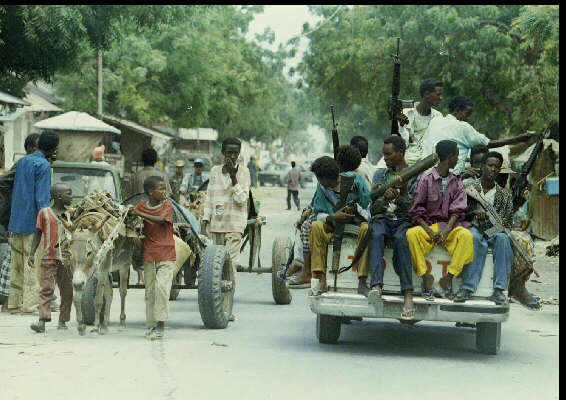
Children pulling a donkey cart watch a carload full of armed militiamen pass through the streets of
MOGADISHU, Feb 26 (AFP) - Dozens of members of Somalia`s minority Bantu community have been killed by militiamen loyal to warlord Mohamed Farah Aidid in the Lower Juba region of the country since January, a Bantu spokesman said here Monday.
Spokesman Ibrahim Mohamed Dirie said Galjeel clansmen, who support Aidid, have been systematically killing Bantu men, women and children in what appears to be a policy of ethnic cleansing in the fertile Lower Juba region of southern
Dirie said the killers were led by Colonel Abbas Mohamed Addow, Aidid`s �regional administrator� in
�Some of the people were killed because of their wealth, while other victims were poor peasants who refused to work in the militiamen`s farms,� Dirie told reporters in north
Most of the killings have occured in Mugambo and Malleyley villages, Dirie added.
On February 13, 1996, Galjeel militiamen killed Makomo Majemi, 56, a rich farmer and a human rights activist in Mugambo, and his son Kabirow Majemi, 18. The two victims had refused to works as bonded labourers in the militiamen`s farms.
Dirie said he was encouraging his people to take up arms and defend themselves against what he called the unprovoked aggression by other groups. He appealed to the international community to investigate Bantu rights violations in the region.
Most of the southern Somalia`s Bantus are farmers who have had little interest in the country`s factional politics or inter-clan warfare.
|
|
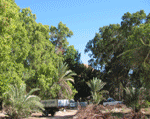 Sawirro Somaliya 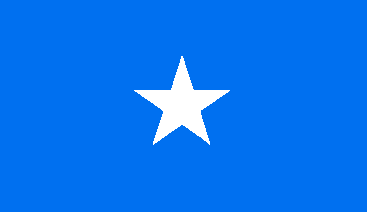 |
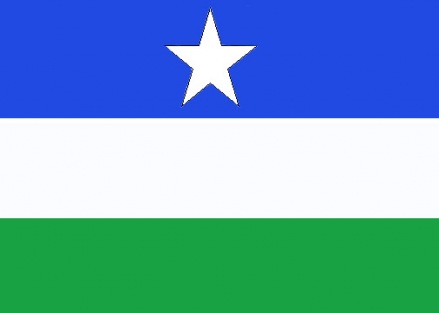
|
GOVERNANCE
The Scourge and Hope of Somalia A New Book By Ismail Ali Ismail 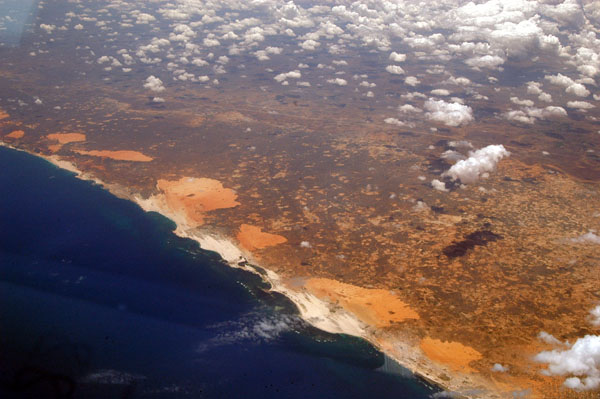 Which Way to the Sea, Please? By Nuraddin Farah Dhulkii Burcad-Badeedda .jpg) Budhcad Badeed Weli Qiil ma Leeyahay? 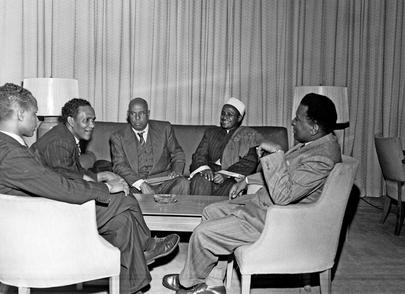 SYL LETTERS By A S Faamo |
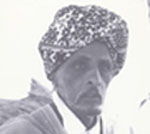 |
 |
© Copyright BiyoKulule Online All rights reserved�
Contact us [email protected] or [email protected] |

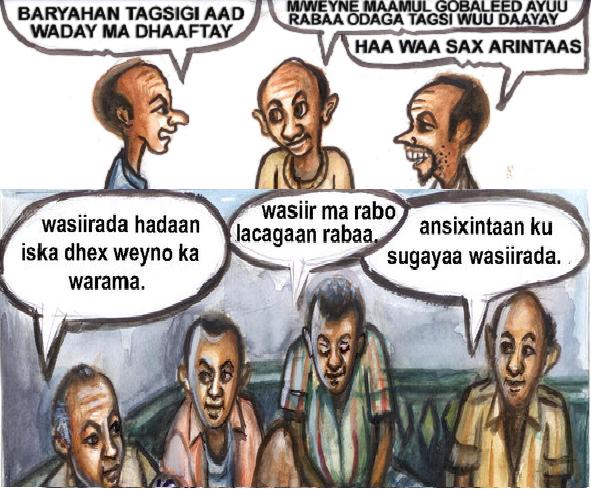
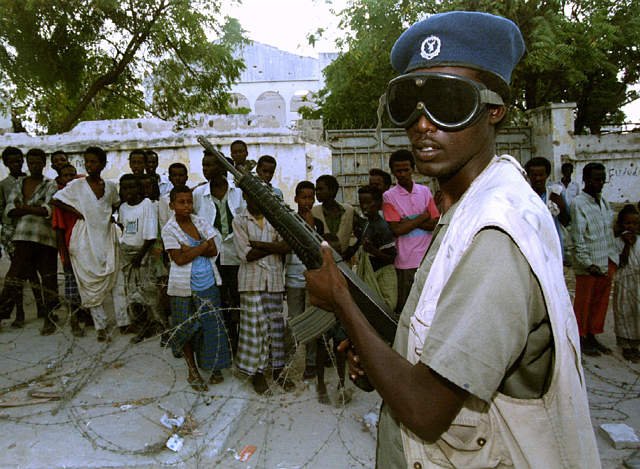


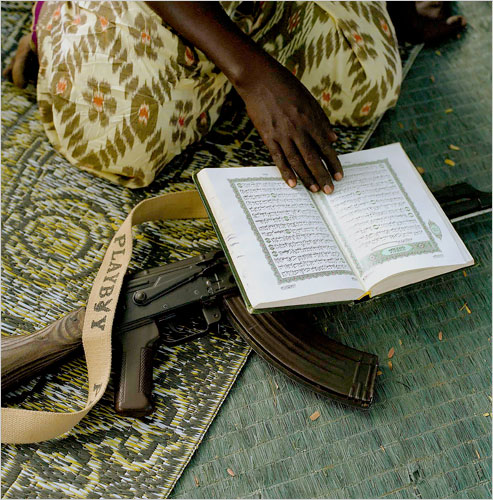

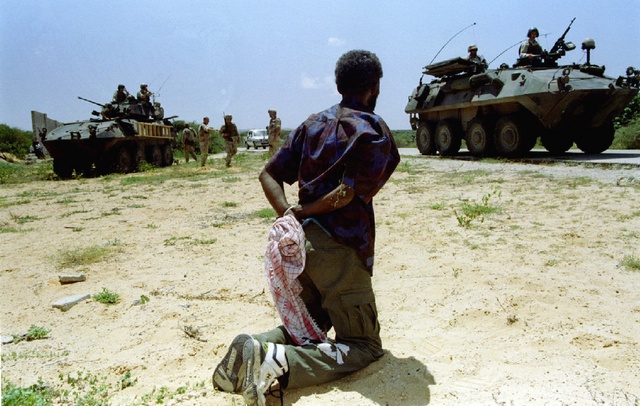
.jpg)


